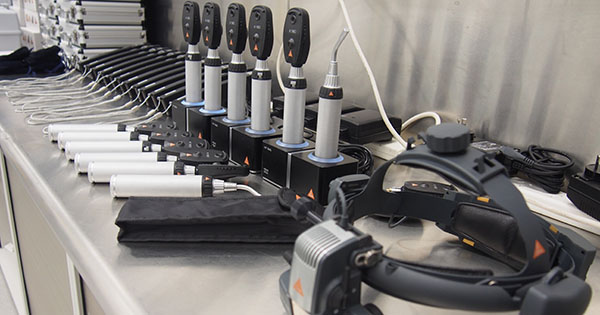Back in the mid 1980’s as a recent graduate, Dr Martyn King didn’t always see “eye to eye” with his senior veterinary associates when they were managing ophthalmic cases.
He sensed that there must be better ways to treat many of these cases, and began a long journey towards specialisation which initially involved reading, and then moving to the UK. Martyn has worked full time in veterinary ophthalmology since 1994, and has been a specialist ophthalmologist since 2002.
Martyn now recognises that the best way of learning about ophthalmology is from experience, such as attending a VetPrac ophthalmology workshop, rather than just reading a textbook. He has found that vets often think that the picture in the ophthalmology textbook will show you exactly what glaucoma looks like, or what a corneal ulcer looks like, but that real life is very different. In Martyn’s opinion vets need to get their hands dirty if they ever hope to be an ophthalmic surgeon.
Attending an ophthalmology workshop will offer an opportunity to learn how to do a thorough ophthalmic examination and to recognise a normal eye, 2 areas which Martyn considers vital to becoming competent enough to be able to accurately diagnose and appropriately manage ophthalmic cases. He suggests that “vets should keep looking at everything to build up a repertoire of normal, and to be thorough, doing every test on every eye. Start with checking for comfort, then do the neuro-ophthalmic testing – any eye that does not have a PLR and you don’t know why needs to be referred. Then start at the front and work towards the back – use magnification – look at everything. Do exactly the same protocol on every eye and don’t get distracted by obvious things when sometimes the more subtle things can give you the diagnosis. Always examine both eyes.”
Martyn believes that GPs should have a certain skill set to be able to deal with simple lid and lash surgery, or enucleations etc, and be able to cope with some surgeries (e.g. conjunctival grafts) where owners can’t or won’t go for referral. Another valuable lesson GP vets can gain from attending an ophthalmology workshop, according to Martyn, is the ability to recognise the difference between eye conditions that they are able to manage themselves and those that should be referred.

Practising in the UK offered many opportunities for Martyn to develop a special interest in ophthalmology due to the high rate of insurance, allowing scope to investigate and treat fully, and the large size of practices which tend to be very well equipped. Martyn returned to Australia in 2005, after 19 years of practice in the UK, to be back in his home town. He would encourage all vets to have a stint in the UK – not necessarily the 19 years he spent there but a few years would be good. He was a little worried initially on his return to Australia because insurance was not as common in 2005 and he thought that referral was going to be less commonplace in Australia than in the UK, but this has not been his experience at all. Martyn has found that vets here and their clients are very keen to be referred, insurance or not.
Martyn’s work in ophthalmology is extremely rewarding, especially when he’s able to restore sight or relieve pain. “The happiness of a pet and their owner when they “see” each other is amazing. You can just see how happy the animal is – and the owners are so grateful. Whether it be cataract surgery or performing laser surgery or gonioshunt surgery for glaucoma, or corneal grafts – all these techniques are very rewarding.” He’s currently setting up an endolaser unit at Perth Animal Eye Hospital to improve the management of glaucoma and intraocular neoplasia.
Martyn loves teaching the students at Murdoch University and at the Vetprac courses. “Imparting knowledge is wonderful, and seeing the amazement on student’s faces when they see the fundus for the first time is fantastic! It’s wonderful to know that by helping these people to learn we are not just helping them but also all the patients they will be seeing themselves”. He encourages new graduates to listen to nurses! “They know heaps and are a great source of information! Keep asking your boss for help and if they won’t help then find a new job! Admit things if you are not sure so you can work them up with your colleagues, or to give you time to practice examining the fundus etc. Keep practicing, keep looking”
Martyn looks forward to opening your eyes to the area of veterinary ophthalmology at the VetPrac Practical Ophthalmology workshop in February at UQ Gatton. Register today or click here to read more information.
Written by Alison Caiafa
Contact information:
Dr Martyn King
Perth Animal Eye Hospital
Phone (08) 6110 1616
Join VetPrac on the 15-16th of February 2020 for the popular Practical Ophthalmology Workshop where you’ll develop skills that will build your surgical confidence. With over 7 hours of practical wet labs this hand-on’s stimulating environment will allow you to walk away with skills that can be immediately applied to general practice. Class size is limited with tutelage by specialist ophthalmic surgeons Dr. Mark Billson, Dr Martyn King, and Dr. Edith Hampson. Did we also mention the workshops are super fun?

